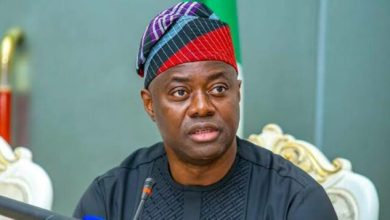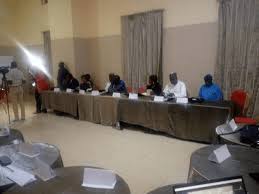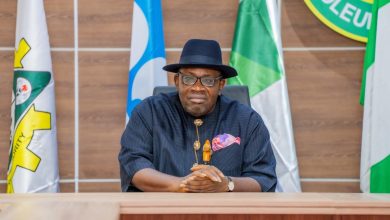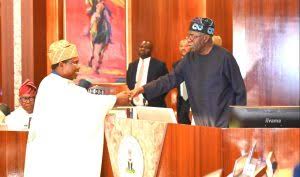Delta Assembly to institutionalise post-legislative scrutiny for good governance
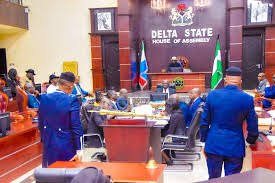
The Delta House of Assembly is to institutionalise Post-Legislative Scrutiny (PLS) as part of its efforts to strengthen legislative accountability, transparency, and evidence-based governance.
The Speaker of the State House of Assembly, Mr Dennis Guwor, disclosed this in Asaba on Thursday during a three-day capacity-building workshop organised by the Westminster Foundation for Democracy (WFD) in collaboration with the Assembly.
The News Agency of Nigeria (NAN), reports that the workshop brought together lawmakers, senior government officials, and representatives from the National Institute for Legislative and Democratic Studies (NILDS).
NAN also reports that the initiative formed part of WFD’s broader programme to deepen democratic practices and ensure that laws enacted by state legislatures deliver tangible benefits to citizens.
The Speaker, reaffirmed the Assembly’s commitment to promoting accountability and good governance through the adoption of Post-Legislative Scrutiny.
He described PLS as a crucial democratic mechanism that allows legislatures to assess whether laws achieve their intended objectives after enactment.
“For any legislature serious about accountability, PLS is not optional—it is essential.
“Our responsibility as lawmakers does not end with passing bills. We must ensure those laws work in practice and remain relevant in a changing society, ” he said.
Guwor noted that while the state Assembly has passed several progressive laws across various sectors, evaluating their real-world impact remained a challenge without formal post-legislative mechanisms in place.
He said the workshop was both “timely and necessary” to equip lawmakers and staff with the tools to track and assess the performance of legislation.
Guwor, stressed that such a process would build a culture of evidence-based lawmaking and restore public confidence in the legislature.
Citing international best practices, the Speaker observed that advanced democracies such as the United Kingdom have long institutionalised PLS as part of their governance systems.
“In Nigeria, only the Oyo State House of Assembly has integrated PLS into its oversight functions.
“Delta State is poised to become the second and the first in the South-South region, ” he said.
The speaker pledged that the 8th Delta Assembly would work closely with WFD to develop a clear framework for PLS, including defined rules, timeliness, and reporting systems.
“Effective laws are not those that exist on paper but those that make measurable differences in people’s lives.
“Post-Legislative Scrutiny ensures that legislative promises translate into tangible outcomes, ” he said.
Guwor also outlined plans to engage civil society organisations, academia, and the media in the scrutiny process, while ensuring that the executive arm of government implements recommendations arising from reviewed exercises.
He commended the WFD for its continued partnership and technical support, which he said had greatly contributed to strengthening legislative capacity in Nigeria.
“Together, let us make Post-Legislative Scrutiny a living part of our democratic culture in Delta State,” the Speaker urged participants.
Also, Mr Adeboeale Olorunmola, Country Director of WFD Nigeria, said that the expansion of the PLS initiative to Delta marked another milestone for the foundation, following the successful establishment of Nigeria’s first dedicated PLS Unit at the Oyo State House of Assembly.
He noted that pioneering project had since become a model for institutionalising PLS across Nigeria’s legislative framework.
He said the initiative titled “Enhancing the Impact of Sub-National Assemblies through Post-Legislative Scrutiny (PLS)” is aimed at strengthening the capacity of state legislatures to assess the implementation and impact of laws.
“Our work in Delta represents another important milestone in deepening democratic accountability at the sub-national level.
“By equipping lawmakers and staff with the skills to conduct Post-Legislative Scrutiny, we are helping to ensure that laws are not just passed, but that they deliver real results for citizens, ” he said.
Olorunmola explained that the project’s objectives included assessing current knowledge of PLS among lawmakers and staff of the Assembly and the State Ministry of Justice among others.
He added that the initiative also sought to build synergy between the legislature and the executive to ensure better coordination and more impactful law implementation.
Olorunmola reaffirmed that WFD remained committed to supporting democratic institutions and promoting transparent, inclusive, and responsive governance systems across the country.
